Trundle, the locals will tell you, is all the town you'll ever need. That might not be entirely true, but the community of 400 - located about as close to the centre of NSW as it gets - has managed to retain a surprising number of businesses and essential services as many other country towns have faded away.
Subscribe now for unlimited access.
$0/
(min cost $0)
or signup to continue reading
Two schools, a child care centre, a health hub (complete with bulk-billing GP) and sporting facilities are some of the reasons why, even with a median age much higher than the national average, Trundle is popular with young families.
Some here are still quietly seething about a travel writer's recent complaint that the shops were shut at 12.40 on a Saturday afternoon and reference to "what might be Australia's largest pothole". But September's Bush Tucker Festival drew almost 4000 visitors and hopes are high for the first ABBA Festival in three years in October.
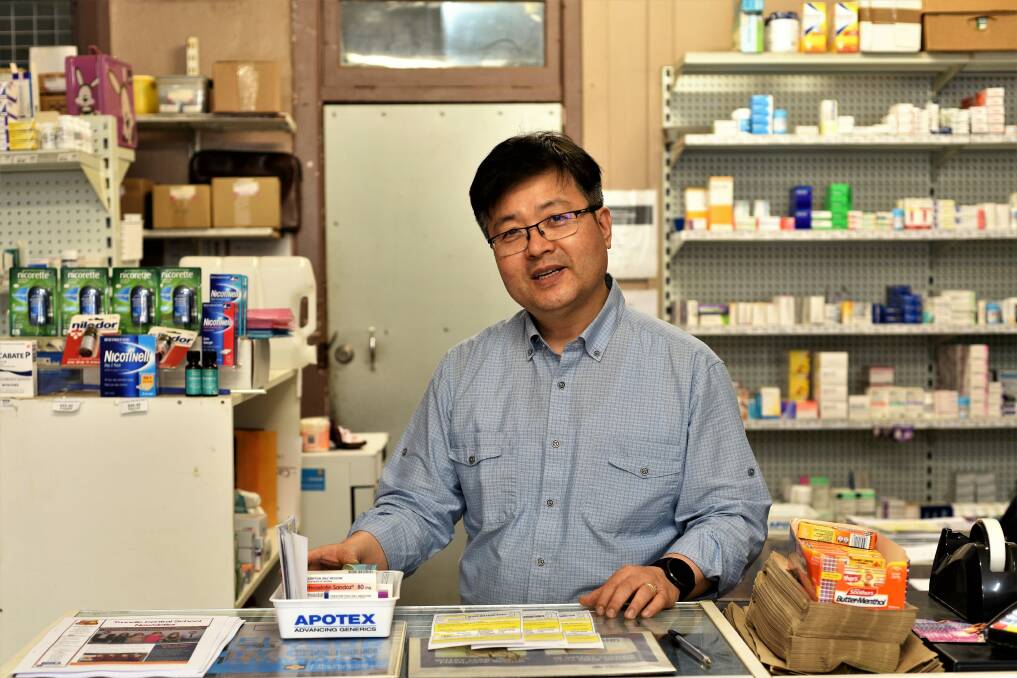
A walk down the town's main street, Forbes Street, takes you past a former bank that is now a bed and breakfast, the Trundle Hotel, a small supermarket, a café in what was once the local butcher's shop and a hardware store.
The other side of the street is bookended by Trundle Services Club and the local branch of farm supply chain AGnVET. Many of the buildings in between are vacant, proof Trundle has suffered from the hollowing out of small regional communities that began in the late 1960s.
The picturesque row of corrugated iron, timber, fibro and concrete shops, once a thriving business precinct, has shrunk to a self-service petrol station, a newsagency and post office, a pharmacy, a hairdressers and a stock and station agent.
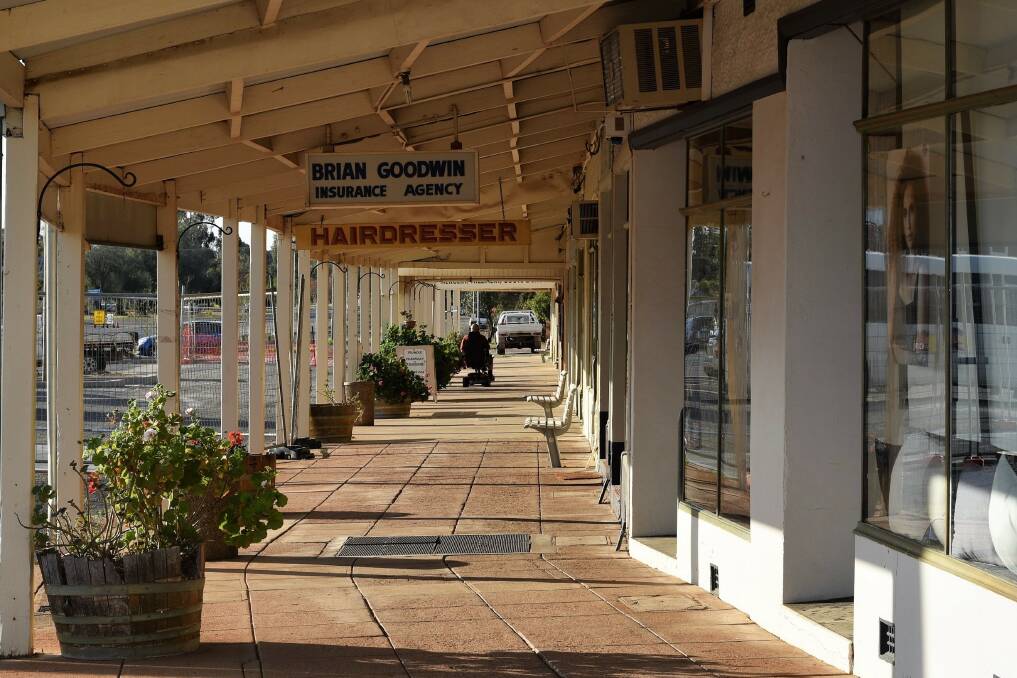
The old Weston Star picture theatre, which would once have screened movies like Casablanca and The Maltese Falcon, flickered out decades ago. Trundle's other two banks, now private homes, cashed out well before the turn of the century as the so-called big four began their rush to the exits in rural Australia.
Now another vital service is under threat. Pharmacist Sam Lee says he is committed to operating Trundle Pharmacy for as long as he is able, but September's introduction of 60-day dispensing for prescriptions could slash his income by up to 40 per cent.
Mr Lee bought the Trundle Pharmacy in 2017. He came to Australia from South Korea in 2005 and says he had always wanted to own his own pharmacy. His shop is a one-man operation trading six days a week.
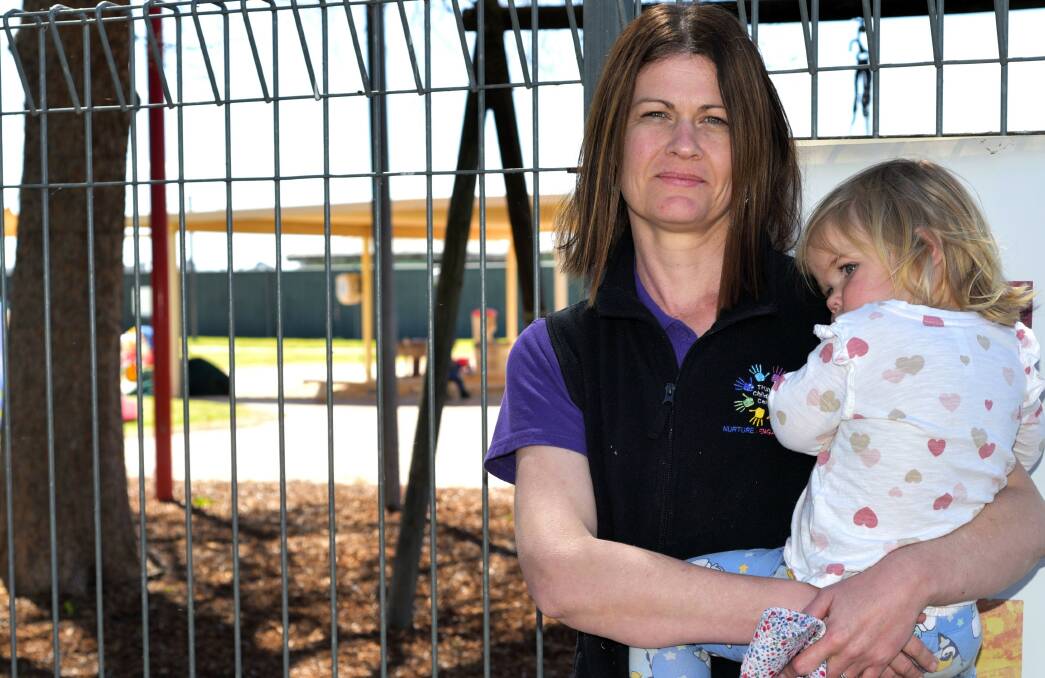
The federal government's changes allow consumers with chronic conditions to pick up two months' worth of medication at a time instead of one month. While the policy aims to reduce costs for patients, the Pharmacy Guild has warned it puts the viability of local pharmacies in jeopardy. Health Minister Mark Butler has dismissed the protests as "a cynical scare campaign".
But in Trundle it's Mr Lee who is scared.
"My prescription sales are about 85 per cent and the other 15 per cent is over-the-counter sales [of non-prescription medications, toiletries and the like]," he says of his business's heavy reliance on prescription income.
Nationally, pharmacies make 59 per cent of their sales revenue from prescriptions and 41 per cent from other items.
If his income is hit as hard as he fears, Mr Lee expects his first response would be to reduce his trading hours - a blow for locals, especially the elderly, who face a 120-kilometre round trip to the nearest chemist shops in Parkes or Forbes.
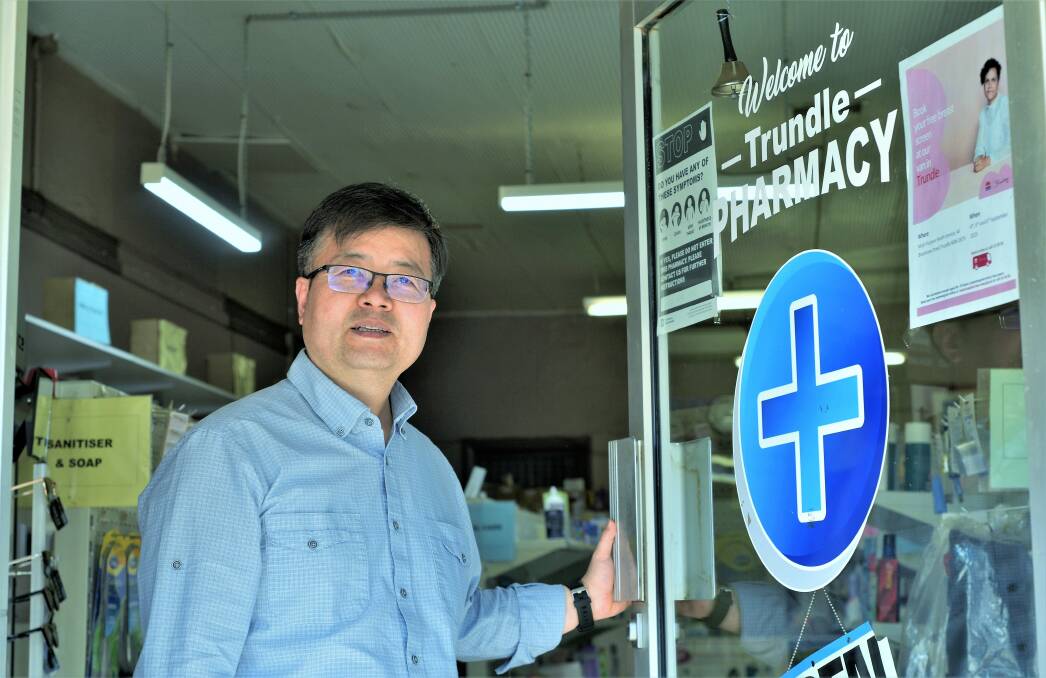
Trundle has been here before. It went without a pharmacy for a decade between 2002 and 2012. With a median income 26 per cent below the NSW average, 40 per cent of residents aged over 60 and 59 per cent dealing with a long-term health condition, townsfolk say they can't lose their local pharmacy again.
Sarah Kilby, director of the Trundle Children's Centre - the local pre-school and long daycare - is proud to be raising her family in "the most incredibly supportive and wonderful local community".
"I grew up on a farm here as a young girl and have since lived in other regional communities and cities," Ms Kilby says.
"For me, nowhere else compares. My husband and I love raising our three girls on a farm surrounded by such a caring and friendly community."
The town welcomed newcomers especially those prepared to "have a go" and get involved.
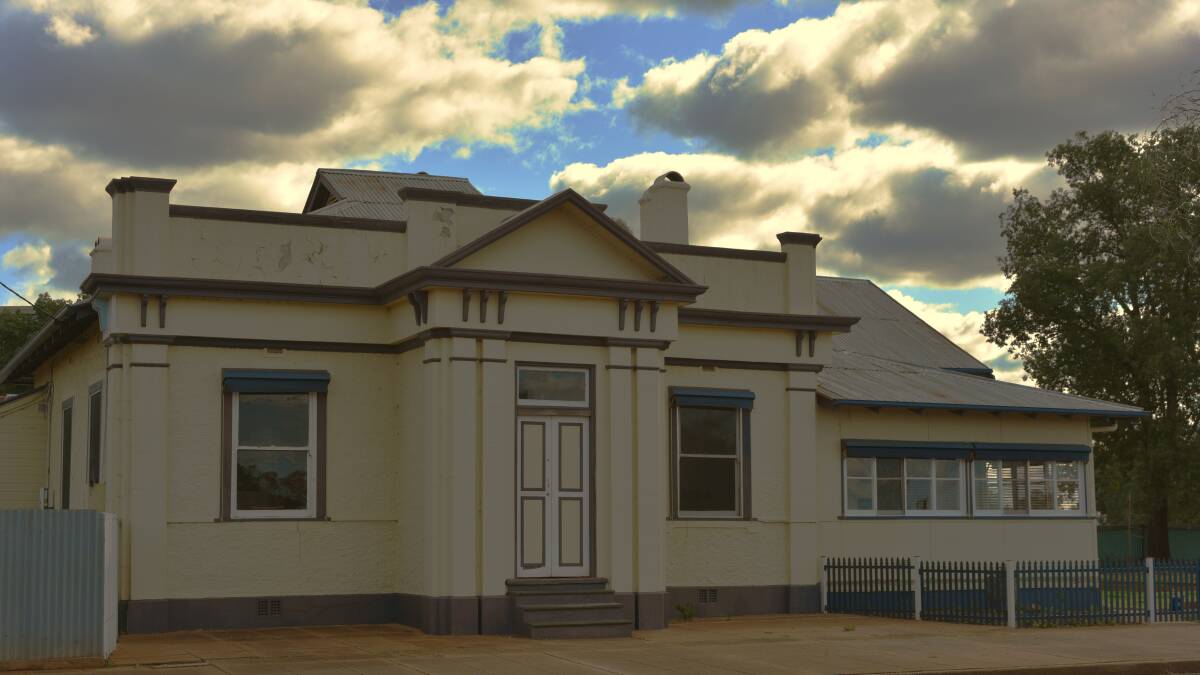
"Much hard work has been done by local groups, especially the Trundle Progress Association, to attract new businesses and workers, as well as to preserve what we have," she says.
Without a local pharmacy, "parents would have to drive long distances with sick children for over-the-counter medicines and scripts".
"Most families rely on access to the Trundle Pharmacy," Ms Kilby says. "It is 45 minutes from our property to Parkes. Others further out have one-way travel times of an hour or longer.
"Our local GP is only open three days a week. We often rely on Sam Lee, our pharmacist, for advice. This, in turn, helps take pressure off the GP."
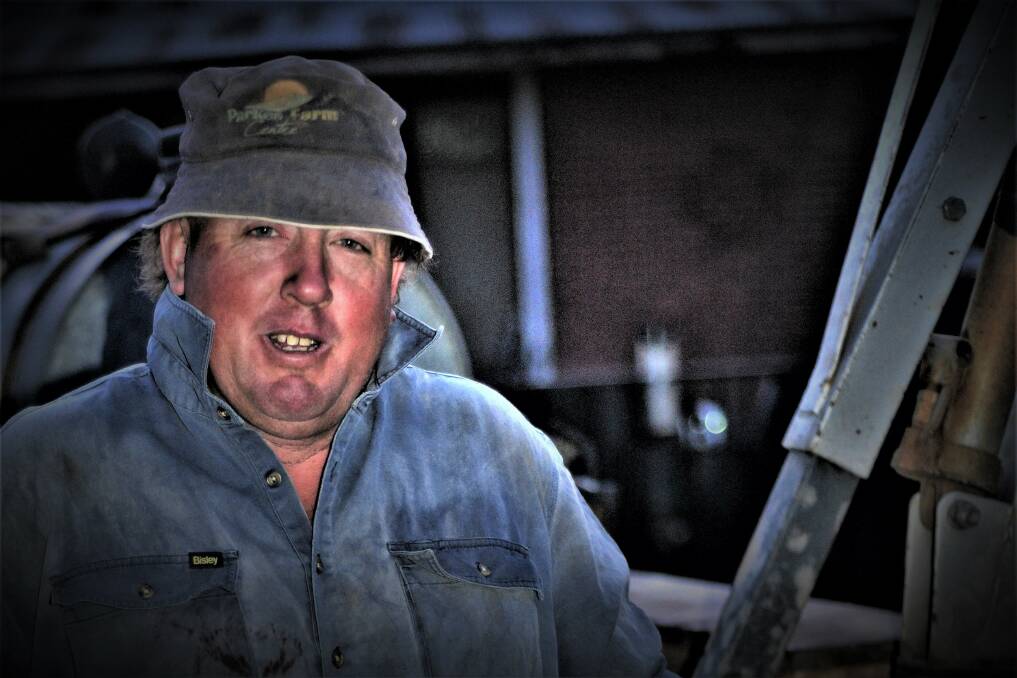
Farmer Andrew Rawsthorne, a community advocate who is on too many local committees to count, believes September's changes were "not match fit" for small-town Australia.
"The Albanese government is quick to trumpet benefits such as cheaper medicine but deathly silent on the legislation's negative impacts," he says. "In small communities such as Trundle, Eugowra and Manildra 60-day scripts could force pharmacies to close for good. That would be a terrible loss for any community and a huge blow to health care across regional Australia."
The loss would have a ripple effect, Mr Rawsthorne says.
"The loss of one business in a small regional community is never limited to that one business, it places every other business in jeopardy too. It also hampers efforts to attract specialists, new businesses and families to the regions."

According to Henry Ergas, author of a report commissioned by the Pharmacy Guild as part of its occasionally controversial campaign against 60-day prescribing, the changes have put 200 pharmacies at risk, with regional and remote areas "disproportionately mpacted".
An arguably more independent report commissioned by the Commonwealth Bank has warned pharmacies would have to charge for services now provided for free, reduce staff numbers and reduce their hours of operation.
READ MORE
Mr Lee believes the government should be doing more to help country pharmacies as part of the next Community Pharmacy Agreement, which has been brought forward by 15 months.
Minister Butler says "constructive" negotiations are under way with the pharmacy sector over the five-year agreement which spells out how much pharmacies are reimbursed for dispensing drugs listed on the Pharmaceutical Benefits Scheme.
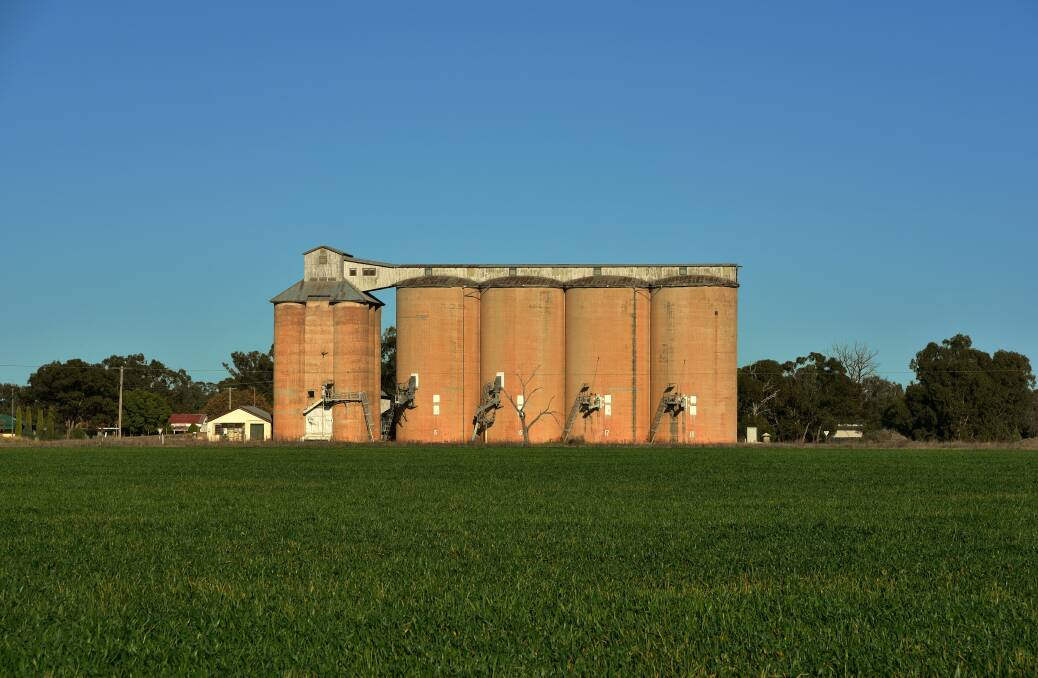
A spokeswoman for Mr Butler says pharmacies in small rural towns and remote and very remote communities are eligible for a Regional Pharmacy Transition Allowance as part of the shift to 60-day dispensing.
To qualify for the annual allowance, which ranges from $49,566 to $84,619, a pharmacy has to fill at least 22,914 prescriptions a year. But for a pharmacist servicing a population of 1000, that's at least 23 scripts a year for every man, woman and child. While the median annual script volume is 45,825 per pharmacy, in many small towns it's a lot lower.
Trundle's Mr Lee says he fills about 15,000 scripts a year and has no hope of ever being eligible for the transition allowance. Doubling the amount of medication that can be obtained on a single prescription or repeat, could reduce the number of prescriptions he fills to fewer than 10,000 a year.

And while payments under the Regional Pharmacy Maintenance Allowance have been increased, Mr Lee says he will still be well behind.
But the pharmacist is gratified by the support of his customers.
"I get a lot of support from my customers, most of who understand the impact 60-day dispensing will have and share my concerns," he says.
"As the only pharmacist in this small town, I enjoy serving and communicating with all the people of Trundle. I know most of the customers [and] everyone is very kind and supportive. I hope to continue fulfilling my role for this small and aging community."
- David Ellery is a resident of Trundle and a Trundle Pharmacy customer. He has worked as a journalist in regional NSW and Victoria since 1978 and writes for The Canberra Times.


